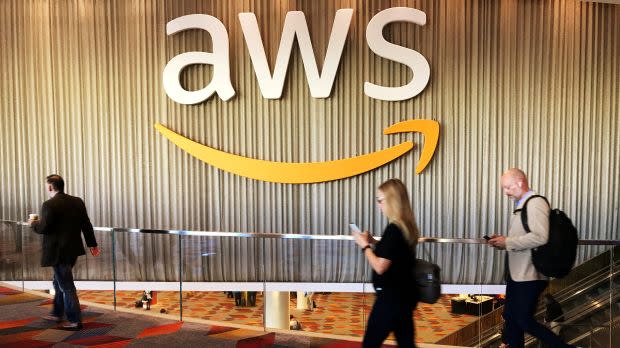A total Amazon cloud outage would be the closest thing to the world going offline

Anyone in doubt about the extent to which Amazon rules our lives—well beyond the things we buy—only needs to look at the spiraling effects of an Amazon Web Services (AWS) outage on Dec. 7, when everything from banking apps to home deliveries to Christmas lights suddenly blinked out.
AWS, which supplies nearly a third of all cloud computing services used by companies online, first reported an outage on the morning of Dec. 7; the problem lay in several network devices being flooded with a high volume of traffic from unknown sources. By the evening, AWS said on its status dashboard that it was still “working towards full recovery across services.” The following morning, the main outages had been fixed, although AWS remained slower than usual.
For much of the day of Dec. 7, therefore, a wide array of web-based services turned lethargic or comatose. Our daily routines have become thoroughly but invisibly reliant on cloud computing, so even a partial AWS problem can cause an astonishing suspension of our ordinary activities. Indeed, a particularly unlucky person might have found every single part of their day hit by the outage, bringing normal life to a grinding halt.
What services did AWS’ outage affect?
Our hypothetical consumer, a college student, woke late, just around the time AWS went on the fritz, so she couldn’t order her voice-controlled coffee maker to serve up an espresso; Alexa, the Amazon assistant now built into several coffee makers, was down. Her fridge froze up, trying and failing to update its operating system. Even her smart lightbulbs refused to turn on to dispel the winter gloom.
My parents are acutely aware of the AWS outage because their smart home lightbulbs aren’t responding to voice commands right now.
— Matt Schultz
(@schumatt) December 7, 2021
She had a Zoom call in the morning: a group study thing, organized via the online platform Meetup, but it was canceled because Meetup used AWS too. To fill the time, she figured she’d watch some Netflix; no luck there either. She couldn’t order groceries on Instacart, or rebook her Delta Air Lines ticket for a Christmas-eve trip, or send money to her friend via Venmo, or buy meme stocks on Robinhood. She was expecting an Amazon package, but delivery drivers found that their apps were down as well, so they didn’t know where to go or what to deliver. Perhaps it didn’t matter, because the driver couldn’t have rung her Ring doorbell anyway.
I’m an Amazon driver and the outage is also hitting us and we can’t make deliveries, so we’re just playing karaoke pic.twitter.com/QoLR8wZKhC
— Kool Sweety (@Kool992704) December 7, 2021
The problems continued. She couldn’t access Canvas, the popular online teaching platform, so she didn’t know what she needed to study for her finals. Tinder didn’t even work. With all this time on her hands, she decided to complete a long-pending clean of her apartment, only to discover that her Roomba vacuum cleaner relied on AWS too.
Elsewhere, visitors to Disney theme parks were unable to check in online or pay for purchases, Adele fans were foiled in their plans to buy tickets for her upcoming tour, webcasts at a UBS conference had to be rescheduled, and crypto-geeks couldn’t obsessively check the value of their holdings on Coinbase or other exchanges. (At Quartz, we had trouble sending out some of our newsletters.) One Twitter employee in San Antonio found that AWS dysfunctions had even affected his Christmas lights.
The AWS outage trickled down to my automated Christmas lights not turning on tonight
— Arthur (@art_garzajr) December 8, 2021
Given how complicated the architecture of the internet is, outages are surprisingly rare; when servers belonging to Fastly, a cloud computing company, went down in June, it proved to be a lesson in the virtue of decentralization—the practice of distributing content across as many servers as possible. AWS’s outage, though, is a reminder that the internet suffers from other kinds of centralization—in this case, from an overwhelming reliance on Amazon, which dominates the online services that accessorize our offline lives.
Correction: An earlier version of this stated that AWS offers cloud computing solutions to nearly a third of the Internet. In fact, it supplies nearly a third of all cloud computing services used by companies online.
Sign up for the Quartz Daily Brief, our free daily newsletter with the world’s most important and interesting news.
More stories from Quartz:
